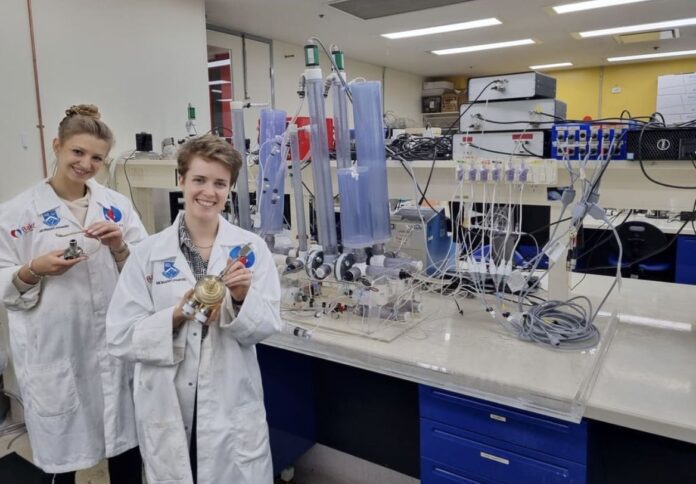
A team of biomedical engineering students from Monash University has kickstarted the world’s first artificial heart competition to help over 64 million people worldwide who suffer from heart complications.
Heart Hackathon is the world’s first student-led biomedical engineering competition and was created by Monash Young MedTech Innovators. It seeks to design and commercialise a robotic heart that would help combat heart failure.
Shaun Gregory, an associate professor in Monash’s Department of Mechanical and Aerospace Engineering, said Heart Hackathon would help foster critical innovations for cardiovascular disease, which is the leading cause of death worldwide.
“This student competition will educate the next generation of biomedical engineers, and hopefully lead to new discoveries and new Total Artificial Heart (TAH) designs which can revolutionise the field,” Gregory said.
The competition received backing from world-leading biotech sponsors, such as Australian medical device manufacturer Hydrix and US-based company SynCardia, developers of the only clinically available artificial heart in the world.
The competition will see participation from undergraduate teams from Australia, New Zealand, Europe, Africa, the United Kingdom, and the United States.
These students will design and build artificial heart prototypes, which will be judged by world industry experts at the annual conference of the International Society for Mechanical Circulatory Support.
Winning teams will be able to obtain cash prizes and industry exposure, access career-building opportunities and get the chance to help mitigate the growing rate of heart failure deaths globally.
Heart failure affects approximately 300,000 Australians, with over 30,000 new diagnoses made every year. One in 50 Australians dies from heart conditions, Monash University said in a press release.
Julie Dao, a PhD candidate at Monash Biomedical Sciences Cardiovascular Program, noted that while a TAH exists, it is large, heavy, cumbersome and has many complications.
“Building a TAH is a tremendously complex challenge. It requires developing a miniaturised pump that can pump enough blood to support both sides of the circulatory system – systemic and pulmonary – while fitting into a fairly small space,” Dao said.
Daniel Teo, a board member for SynCardia, said they believe that a fully implantable and permanent TAH is possible, but will need some of the world’s best engineers and clinicians.
“This Hackathon is one way to inspire a new wave of innovators and generate fresh excitement around the world as we work with cardiologists, surgeons and other medical professionals to save more lives, one heart at a time,” Teo said.


















